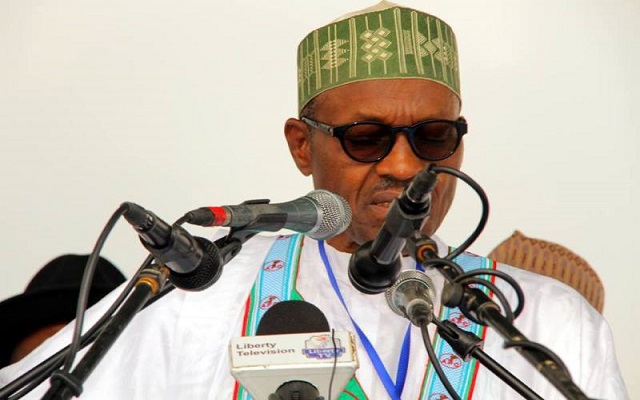Opinion
Tahir Sherriff: Will Muhammadu Buhari End The Economic Slavery Of Northern Youths?

Before the rise of Boko Haram, if you had traveled through the northern hemisphere of Nigeria and seen the millions of jobless youths, idle families and homeless children, you would have guessed by yourself that the region was a ticking bomb. Should General Muhammadu Buhari emerge as president of Nigeria after coming elections, will he be able to correct this?
Some have blamed Islam for the economic state in northern Nigeria, this is sad, but using beer-parlour analysis, what other explanation is sufficient. For a lot of Nigerians, especially those who reside permanently in the southern parts, what else could doom a man into strapping himself with explosives if not his beliefs? Some have blamed the puritanical Fatwa’s by Mallams in the region; fanatical men who preach destructive doctrines creamed with promises of heaven and seventy-two virgins. But some the educated northerners themselves can see the problem for what it is; an economic one. What is most obvious for those who were born in the north, have lived a significant number of years there, and have travelled to almost every corner in the northern states, the uniform explanation is that people there simply have nothing to do.
Will Buhari be able to revitalize the private sector? Will he be able to rise to the required levels of job creation in Nigeria generally and particularly in the north? Will he improve the agricultural sector? Northern Nigeria is a region where you can see a Kolanut seller sit under the sun for a whole day, leaving his tiny tray of kolanut only during pray time, and returning home later on to his two wives and five children. It is easy to marvel at cultural levels of contentment here, but the crack hidden in the silver lining is that even this Kolanut seller wishes to do things differently; his society simply has no provision for him to do so. Everything has largely remained the same since the almagamation.
There are no factories in consistent need of manual or casual labor. There is no sea-port for the exportation commodities, and there is clearly not enough family members in active government employment to balance the financial responsibilities. Businesses have folded up over sectarian and religious crisis. Banks have reduced investment portfolios, and alien traders are migrating out at staggering levels. Almost all the government contracts are being outsourced, even the construction of personal houses have mostly been either awarded to a Lebanese company, or to a family member of the builder (often a young Abuja resident who sweeps in to get the job done at far more costly rates than his local competitors).
The challenge in the north is an economic one. But Economics alone cannot explain this; there is politics to deal with. So perhaps if General (rtd) Muhammadu Buhari sweeps into power (as most in the north expect) and rids the region of corruption and misconduct, the most important question for those in the region is how he plans to tackle the economic situation that has fostered decay and remains the backbone of insecurity in the region?
All too often the word on the lips of northern politicians and stake holders to their people is charged with blame on the current political disposition. In some instances, these blames hold water; the president in power can be blamed for failing to adequately combat the insurgency in the northern parts, the ruling political party can be blamed for election manipulation that has lead the way to an array of post-election violence and sectarian crisis, but as it stands today and has always been, northern states have been governed by northerners themselves. The Local government chairmen are well known in their communities, the governors have relatives and friends all over their states and the legislators who own houses in Abuja and Kaduna equally spend a considerate amount of time in their constituents.
Politicians and statesmen charged with the governance of the northern hemisphere have remained in a long deviance from the founding fathers of the region; men like Tafawa Balewa, Aminu Kano and Ahmadu Bello. A new brigade of self-interest seeking politicians and rogue civil servants deserve a major share in the blame for the economic enslavement in the northern states, and these are the men General Muhammadu Buhari may have to contend with should he emerge as president of Nigeria in the stiffest run up since the dawn of democracy.
Is the economic situation in the north more paramount than that of security? You bet it does. An economically dysfunctional region that remains a significant part of Nigeria but known to produce truck pushers, bread and noodle sellers, house guards and motorcycle riders en-masse seems like a little problem, till they start producing terrorist groups and psychotic religious leaders.
________________________________
Article written by Tahir Sherriff, in-house freelance reporter with NewsWireNGR in Abuja
Disclaimer
It is the policy of NewsWireNGR not to endorse or oppose any opinion expressed by a User or Content provided by a User, Contributor, or other independent party.
Opinion pieces and contributions are the opinions of the writers only and do not represent the opinions of NewsWireNGR






